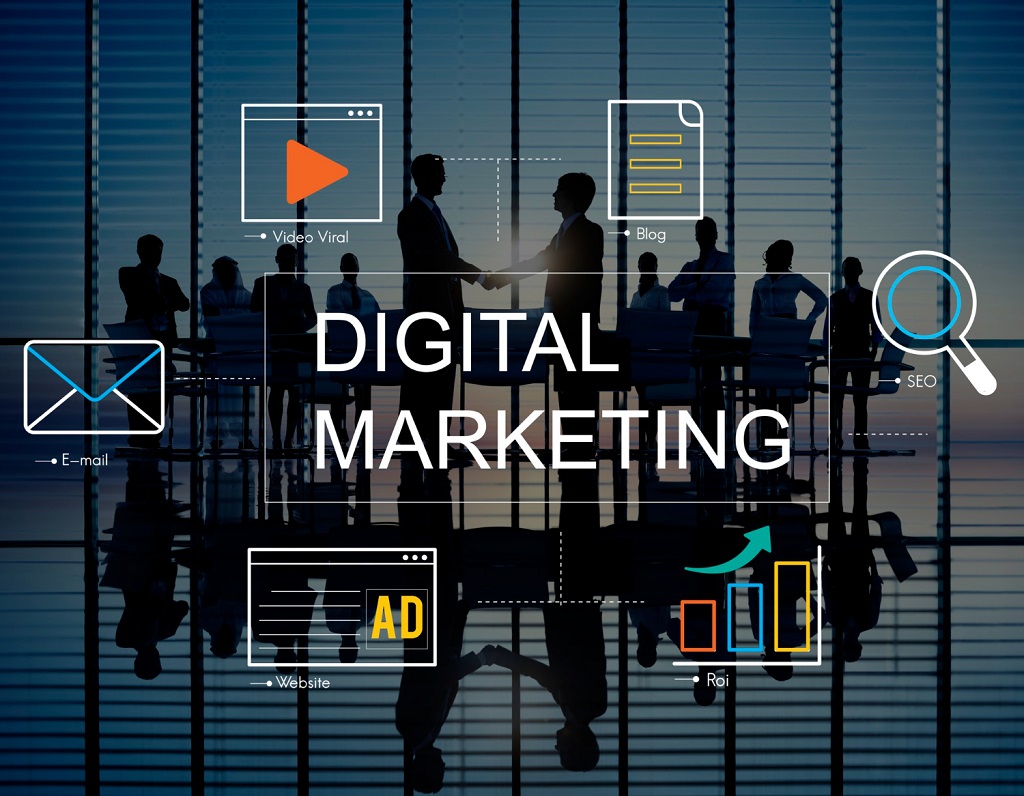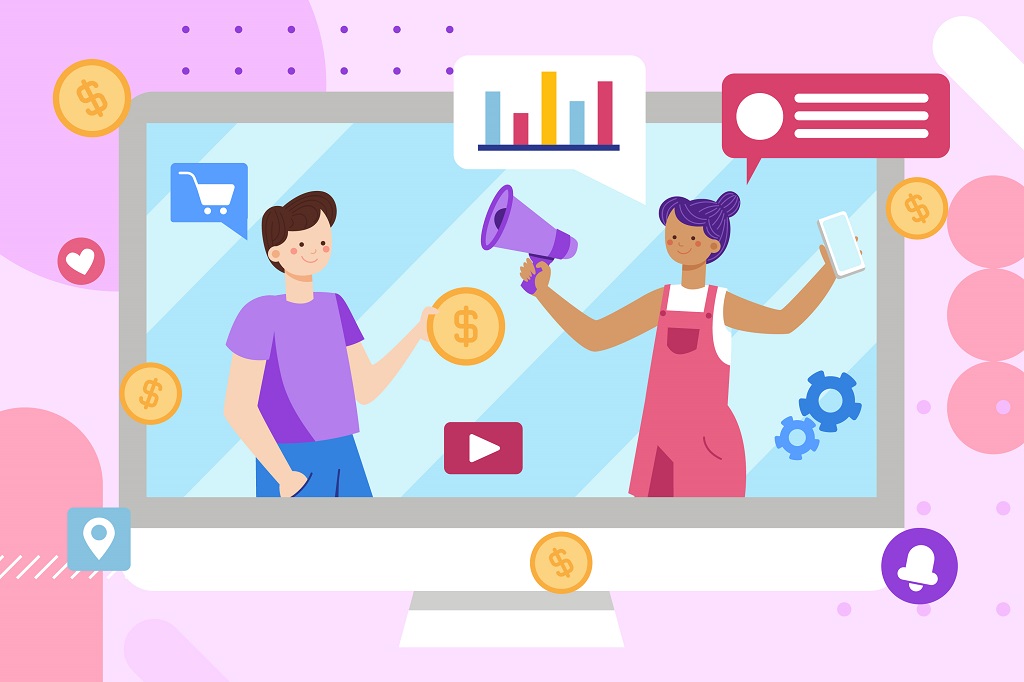Digital marketing refers to the vast array of strategies and techniques employed by businesses to expand their online presence and reach their target audience effectively. In this fast-paced and ever-evolving digital era, companies leverage various digital channels to promote their products and services, build brand awareness, and drive customer engagement. The advent of the internet and social media platforms has revolutionized the way businesses communicate with their customers. Through online advertising, content marketing, social media marketing, search engine optimization (SEO), and email marketing, companies can connect with customers on a more personal level. One of the key advantages of digital marketing is its cost-effectiveness, as it offers businesses an opportunity to reach a broader audience at a fraction of the cost compared to traditional marketing methods. Moreover, digital marketing allows for better targeting and segmentation, enabling businesses to tailor their marketing messages to specific demographics, interests, or behaviors. This level of personalization enhances the overall customer experience and increases the likelihood of conversions. Additionally, digital marketing provides businesses with real-time data and analytics, allowing them to track the performance of their campaigns and make data-driven decisions to optimize their marketing strategies. By analyzing metrics such as website traffic, click-through rates, and conversion rates, businesses can identify areas for improvement and refine their marketing efforts. Furthermore, digital marketing enables businesses to engage in two-way communication with their customers, fostering brand loyalty and customer satisfaction. Whether through social media interactions, online reviews, or personalized email campaigns, companies can engage in meaningful conversations and provide timely customer support. As technology advances and consumer behaviors continue to shift, digital marketing will undoubtedly remain a crucial component of any successful marketing strategy. It offers businesses unparalleled opportunities to connect with their target audience, build brand loyalty, and stay ahead of the competition in the ever-expanding digital landscape.

What is digital marketing?
Digital marketing refers to the practice of promoting and selling products or services using digital channels and technologies. It encompasses various online platforms, such as websites, social media platforms, search engines, email marketing, and mobile applications, to reach and engage with a target audience. This form of marketing leverages the power of the internet and digital technologies to create awareness, generate leads, drive sales, and build long-term customer relationships. It encompasses a wide range of strategies and tactics, including content marketing, search engine optimization (SEO), social media marketing, email marketing, influencer marketing, and online advertising. With the ever-increasing reliance on digital platforms, digital marketing has become an essential component of any successful business strategy. It allows businesses to reach a global audience, target specific demographics, and track and analyze data to optimize marketing efforts and drive measurable results. In today’s digital age, digital marketing has emerged as a powerful tool for businesses to connect with customers, build brand awareness, and drive business growth.
Inbound marketing versus digital marketing
Inbound marketing and digital marketing are two distinct approaches to promoting products and services in the modern era. Inbound marketing focuses on attracting potential customers by providing valuable content and engaging with them in a meaningful way. It involves strategies such as content creation, search engine optimization, and social media marketing to build brand awareness and establish a strong online presence. On the other hand, digital marketing encompasses a broader range of tactics, including inbound marketing, but also extends to paid advertising, email marketing, and other forms of online promotion. While both inbound marketing and digital marketing aim to drive traffic and generate leads, they differ in terms of approach and emphasis. Inbound marketing places a greater emphasis on organic methods of attracting customers, whereas digital marketing incorporates a wider range of strategies, including both organic and paid techniques. Ultimately, the choice between inbound marketing and digital marketing depends on the specific goals and resources of each business. Some businesses may prioritize building long-term relationships with customers through inbound marketing, while others may opt for a more immediate and targeted approach using various digital marketing techniques.

Why is digital marketing important?
Digital marketing is an essential element of any successful business strategy in today’s technologically advanced world. In an era where consumers are constantly connected to their devices, it is crucial for businesses to establish an online presence and engage with their target audience effectively. Digital marketing allows companies to reach a wider customer base, enhance brand awareness, and drive more traffic to their websites. By utilizing various digital channels such as social media platforms, email marketing, search engine optimization, and content marketing, businesses can build relationships with customers, generate leads, and ultimately increase sales. Furthermore, digital marketing provides businesses with valuable insights and data, allowing them to make informed decisions and optimize their marketing strategies. With the ever-increasing prevalence of technology, it is undeniable that digital marketing is crucial for businesses to remain competitive in today’s fast-paced and digital-centric world.
Types of digital marketing
Digital marketing is a vast and ever-evolving field that encompasses various strategies and techniques to promote products and services using digital platforms. There are several types of digital marketing that businesses can employ to reach their target audience and drive engagement. One such type is social media marketing, which involves leveraging popular social media platforms such as Facebook, Instagram, Twitter, and LinkedIn to connect with potential customers, build brand awareness, and drive website traffic. Another type is search engine optimization (SEO), which focuses on optimizing a website’s content and structure to improve its visibility and ranking on search engine results pages. Email marketing is yet another type, where businesses send targeted emails to their subscribers to nurture leads and encourage repeat purchases. Additionally, content marketing involves creating and sharing valuable and informative content such as blog posts, videos, and infographics to attract and engage an audience. Influencer marketing is a newer type that involves partnering with influential individuals on social media to promote products and services to their followers. Finally, there is also pay-per-click (PPC) advertising, which involves placing ads on search engines or other websites and paying a fee each time someone clicks on the ad. These are just a few examples of the different types of digital marketing available, each with its own unique advantages and strategies to help businesses thrive in the digital landscape.
